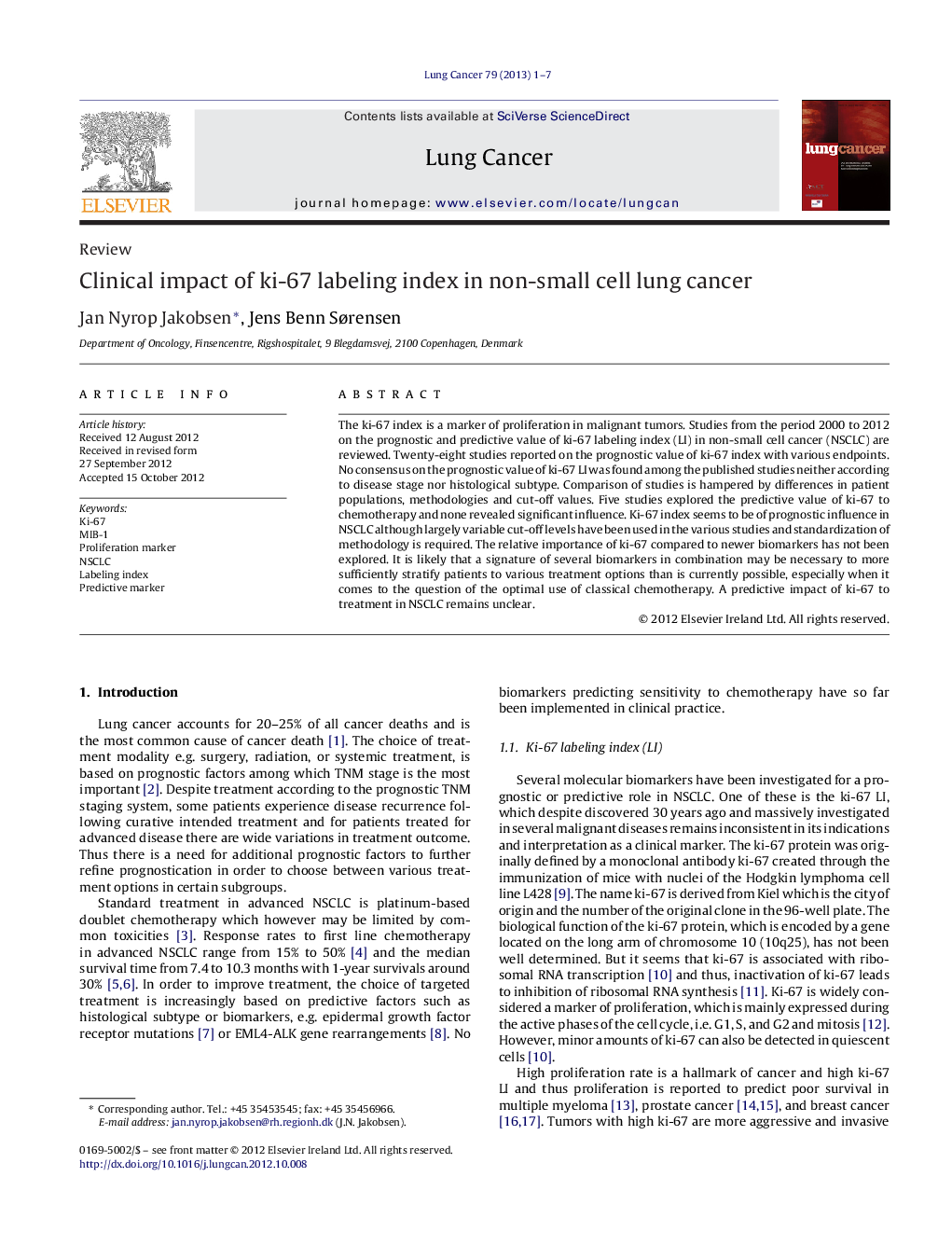| Article ID | Journal | Published Year | Pages | File Type |
|---|---|---|---|---|
| 2141643 | Lung Cancer | 2013 | 7 Pages |
The ki-67 index is a marker of proliferation in malignant tumors. Studies from the period 2000 to 2012 on the prognostic and predictive value of ki-67 labeling index (LI) in non-small cell cancer (NSCLC) are reviewed. Twenty-eight studies reported on the prognostic value of ki-67 index with various endpoints. No consensus on the prognostic value of ki-67 LI was found among the published studies neither according to disease stage nor histological subtype. Comparison of studies is hampered by differences in patient populations, methodologies and cut-off values. Five studies explored the predictive value of ki-67 to chemotherapy and none revealed significant influence. Ki-67 index seems to be of prognostic influence in NSCLC although largely variable cut-off levels have been used in the various studies and standardization of methodology is required. The relative importance of ki-67 compared to newer biomarkers has not been explored. It is likely that a signature of several biomarkers in combination may be necessary to more sufficiently stratify patients to various treatment options than is currently possible, especially when it comes to the question of the optimal use of classical chemotherapy. A predictive impact of ki-67 to treatment in NSCLC remains unclear.
